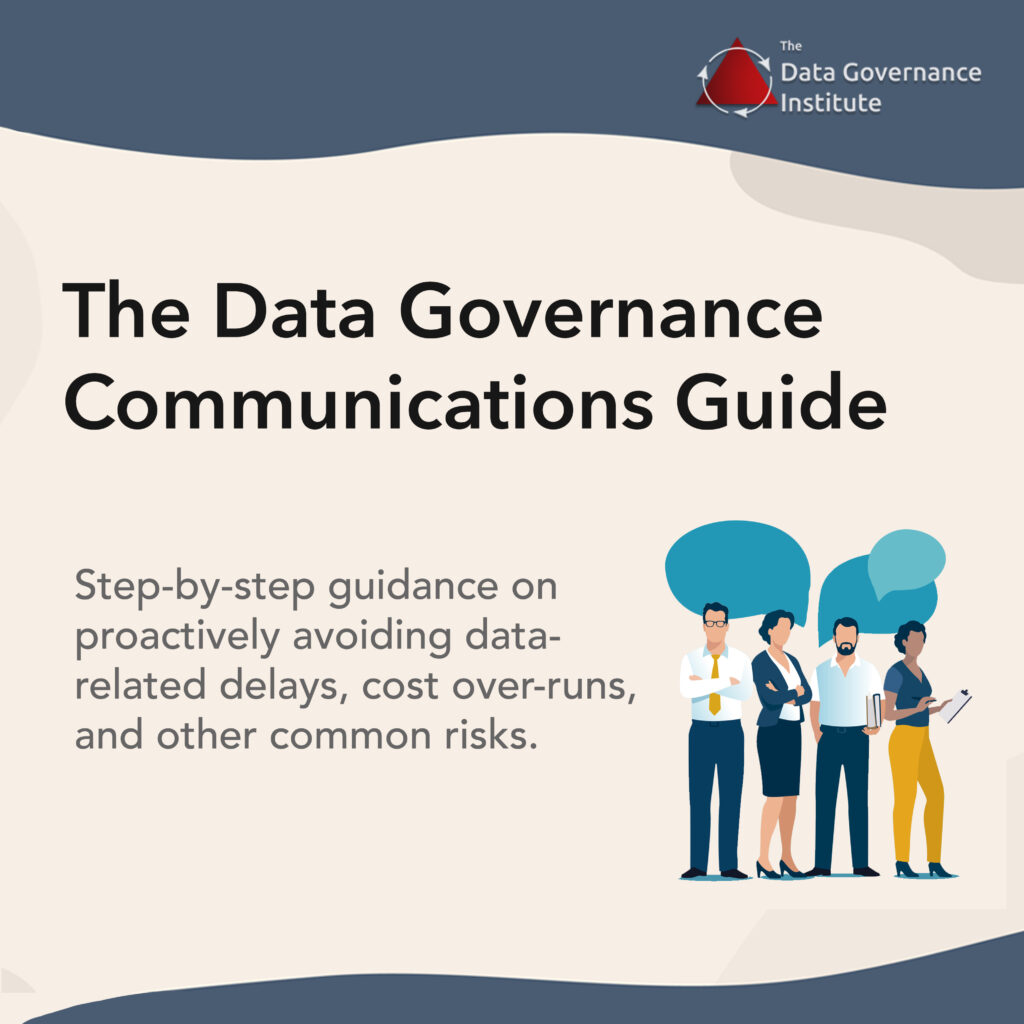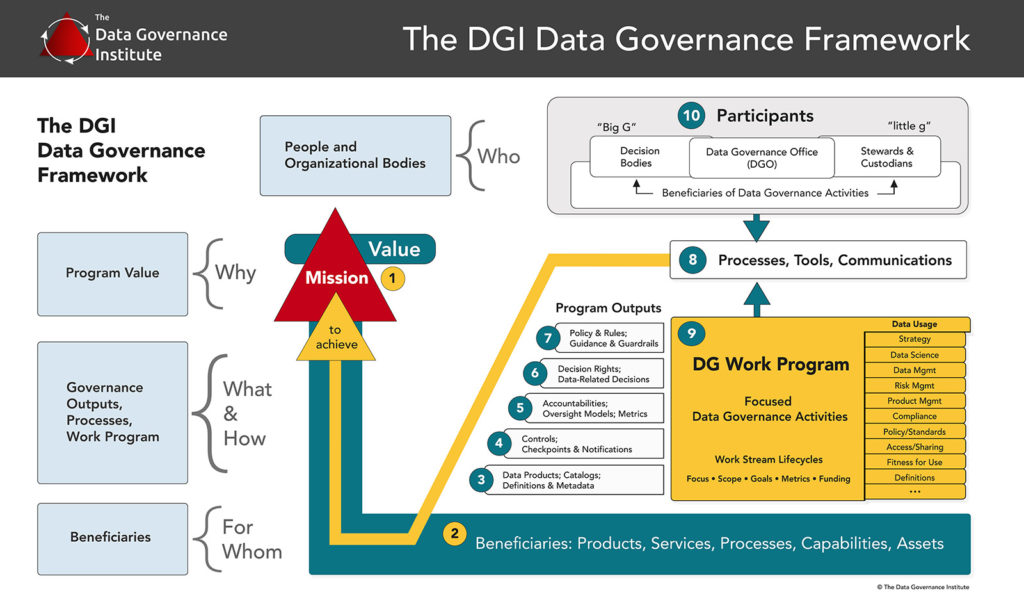All Data Governance programs are not alike. Quite the contrary: programs can use the same framework, employ the same processes, and still appear very different.
Why is this? It’s because of what the organization is trying to make decisions about or enforce rules for. An organization that is concerned with Data Privacy or Compliance is going to look at its data differently than one that is concerned about implementing a new Data Warehouse.

In this section, we look at Data Governance programs with six common focus areas. It’s worth noting: A single framework can help organize efforts for all of these focus areas because of what all Data Governance programs have in common:
- They all have activities that address a three-part governance mission: to create rules, resolve conflicts, and provide ongoing services.
- They all employ most or all of the universal components of a Data Governance program.
- They all address universal governance processes and services, such as Issue Resolution and Stakeholder Care.
Data Governance programs with different focus areas will, however, differ in the type of rules and issues they’ll address.
They’ll differ in the emphasis they give to certain data-related decisions and actions.
And, they’ll differ in the level of involvement required of types of data stakeholders.
Who is a data stakeholder? Any individual or group that could affect or be affected by the data under discussion. Some stakeholders are obvious – business groups, IT teams, Data Architects, and DBAs. Other stakeholders may not be so obvious for a given decision or situation. Knowing which stakeholder to bring to the table – and when – is the responsibility of the Data Governance team.



